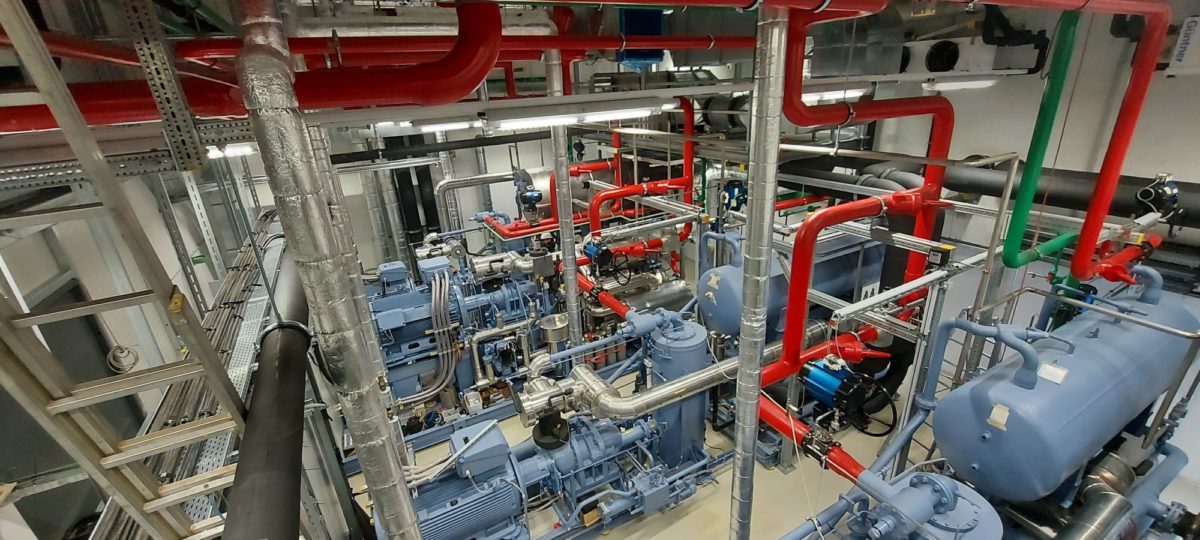The AIT has announced the Advanced Heat Pump Demonstrator (AHEAD) project. The institute and two pharmaceutical companies, Takeda and BMK, aim to build a steam-generating heat pump that can reach temperatures of 200 C to 260 C by using natural refrigerants.
The new technology will build on an existing heat pump that uses a reciprocating compressor and delivers steam at 165 C, developed by Germany-based Sustainable Process Heat. The heat pump is being adapted to use natural refrigerants as part of the AHEAD project.
The new system will first heat water from 65 C to about 130 C, evaporating it in the process. The vapor will then be compressed at 11 bar, heating it to over 184 C, as required for pharmaceutical production.
“The heat pump will be powered by electricity,” an AIT spokesperson told pv magazine. “The technical challenge here is that there may be thermal problems in the compressor or problems with the chiller oil due to the high temperatures. Also, most conventional refrigerants cannot be used for such high temperatures.”
The research project will be the first to integrate a steam-generating heat pump in industrial operations, according to an AIT statement. The team hopes the gas-free system will reduce carbon dioxide production by up to 90% at one of Takeda’s largest pharmaceutical production sites in Vienna, Austria.
“Industry is one of the central levers for achieving European and national climate targets. Around a third of all energy is consumed here, and the sector is responsible for almost 50% of domestic greenhouse gas emissions,” said Bernd Vogl, managing director of Austria’s Climate and Energy Fund. “In order to make industrial processes more sustainable, innovative technologies must be developed and companies, research institutions and the public sector must work shoulder to shoulder – as is the case here with this ‘AHEAD' project.”
The AHEAD demonstrator is expected to start operations at the end of 2024 and last for a period of a year. The project is funded by the Climate and Energy Fund and is part of Austria’s New Energy for Industry (NEFI) research initiative.
This content is protected by copyright and may not be reused. If you want to cooperate with us and would like to reuse some of our content, please contact: editors@pv-magazine.com.



6 comments
By submitting this form you agree to pv magazine using your data for the purposes of publishing your comment.
Your personal data will only be disclosed or otherwise transmitted to third parties for the purposes of spam filtering or if this is necessary for technical maintenance of the website. Any other transfer to third parties will not take place unless this is justified on the basis of applicable data protection regulations or if pv magazine is legally obliged to do so.
You may revoke this consent at any time with effect for the future, in which case your personal data will be deleted immediately. Otherwise, your data will be deleted if pv magazine has processed your request or the purpose of data storage is fulfilled.
Further information on data privacy can be found in our Data Protection Policy.